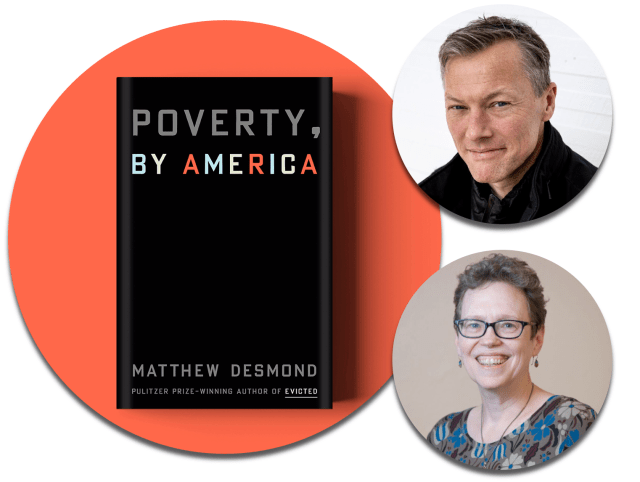Below are three articles that criticize Matthew Desmond’s premises and work in Poverty, By America. It is always valuable to take a look at what the opposition has to say.
Wrong Diagnosis, Wrong Prescription

A prominent sociologist’s new book will only add confusion to the national conversation on poverty.
By Kevin Corinth – May 5th, 2023
“The book’s original sin is its confused understanding of poverty’s causes. Opting for tropes over scientific research, Desmond’s explanations range from irrelevant to backward. While the book reads like a narrative strewn together from talking points borrowed from political advocates, it contains a surprisingly extensive set of notes that reference serious research. Unfortunately, these largely serve as window dressing. Desmond often fails to engage seriously with this research, and as a result, his policy recommendations are unproductive.”

Matthew Desmond’s ‘Poverty, by America’
Somehow both on-target and disappointing.
By Matt Reed – April 24th, 2023
“His [Desmond] new book, Poverty, by America, feels like it was written by a different author. It’s an impassioned manifesto—I’d almost call it a jeremiad—in support of what he calls “poverty abolitionism.” It’s short, punchy, angry, urgent, sometimes self-indulgent and as broad as his earlier work was subtle. I’m still trying to decide if that’s disappointing or just disorienting.”
Matthew Desmond is wrong about poverty in America

By James Rogan – March 30th, 2023
“Put simply, the war on poverty is largely won.
Desmond’s ideology is likely guiding his alternate reality. He proposes, for example, that the U.S. adopt the progressive dreams of confiscatory tax rates, massive redistribution, high minimum wages, broad tariff barriers, and powerful labor unions. Desmond wants to create a European social welfare state where statism, not creative dynamism, is the ideal.”









